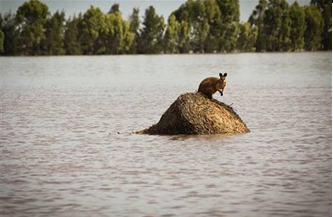Context and aim
Atmospheric sciences are gaining societal attention. Decision makers are increasingly concerned with the problematics of climate change and societal impacts of extreme weather, such as severe storms, floodings, heat waves,...
The study of weather and climate is intrinsically linked. Climate can be considered as average weather, and on the other hand, if the climate changes, the impact will be primarily felt through extreme weather cases. Scientific progress in these fields heavily depends on the development and the use of numerical atmospheric models. Additionally, the focus in climate science is shifting from global climate change to the study of regional climate impact (e.g. the CORDEX project or the Cordex-be project), which demands the development of high-resolution numerical models. The same type of modeling techniques are used to develop models for climate studies as the ones for weather applications.
The aim of this postgraduate programme is to prepare scientists in the most efficient way to become active as a researcher in the modern discipline of atmospheric modeling for weather and climate applications. The content of the program is deeply rooted in the current scientific challenges encountered within the international ALADIN and HIRLAM consortia. These consortia develop and maintain the European HARMONIE system that is used for making numerical weather predictions and climate studies.
In the first semester the programme provides the necessary basic training in meteorology, climatology and numerical ana lysis, that forms the basis for the atmospheric sciences.
In the second semester, the postgraduate builds further on this basis to introduce the students to atmospheric modeling, data assimilation, predictability, remote sensing and chemical air pollution models.
This postgraduate is organised in close cooperation with other institutes as the RMI (Royal Meteorological Institute) and VITO. To be in touch with the current research, the courses are given by (international) specialists working at the RMI, BIRA, VITO, ALADIN,...

